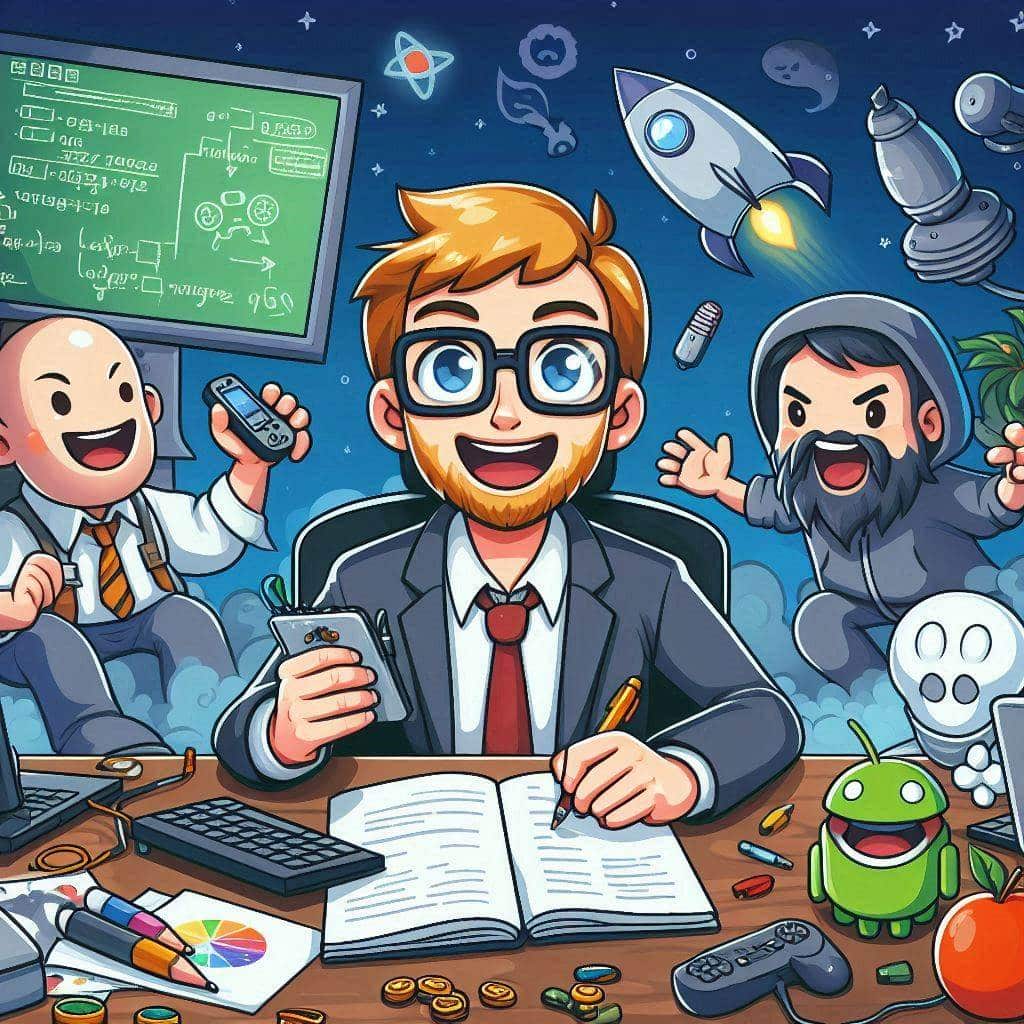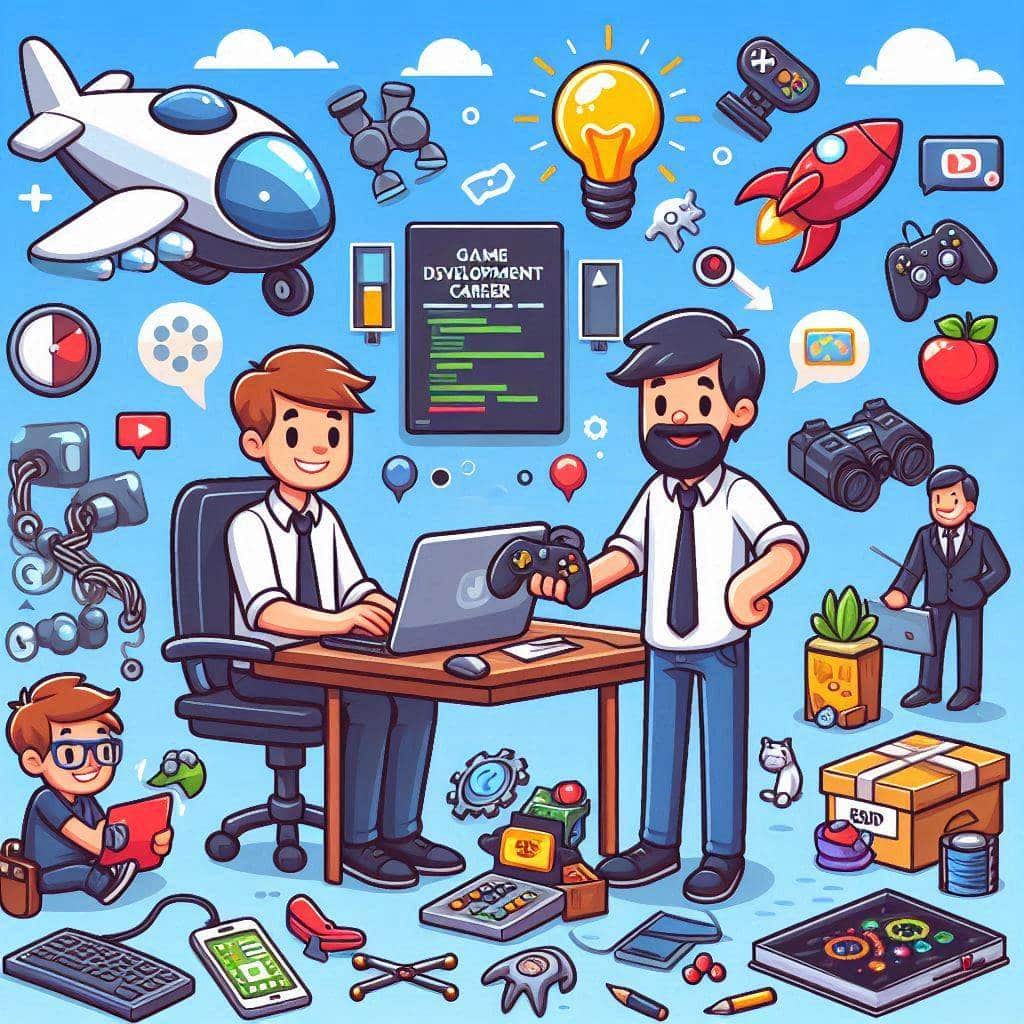Introduction
Turning a passion for game development into a full-time career is a dream for many hobbyists. Whether you’re a self-taught programmer, an aspiring game designer, or an artist with a knack for creating stunning visuals, making the leap from hobbyist to professional can be both exciting and daunting. In this blog post, we will explore the essential steps and strategies for transitioning from a hobbyist to a professional game developer. From building a portfolio to finding job opportunities, we’ll cover everything you need to know to make your dream a reality.
Understanding the Game Development Industry
Before diving into the practical steps, it’s essential to understand the landscape of the game development industry. The industry is vast and includes various roles such as:
- Game Designer: Focuses on the game’s mechanics, story, and overall design.
- Programmer: Writes the code that makes the game function.
- Artist/Animator: Creates the visual elements of the game.
- Sound Designer: Develops the audio elements of the game.
- Producer: Manages the project and coordinates between different teams.
Knowing where your strengths and interests lie can help you target the right roles and opportunities.

Building a Strong Portfolio
A strong portfolio is your ticket to landing a job in the game development industry. Here’s how to build one:
1. Create a Variety of Projects
Showcase a range of projects that highlight your skills. Include different genres and styles to demonstrate your versatility. For instance, if you’re a programmer, create projects that showcase various programming languages and techniques.
Use Case Scenario: Jane, an aspiring game designer, created a portfolio with diverse projects, including a puzzle game, a platformer, and a story-driven adventure game. This variety showcased her ability to design different types of games and helped her stand out to potential employers.
2. Contribute to Open Source Projects
Participating in open-source projects can provide valuable experience and demonstrate your ability to work collaboratively. Platforms like GitHub are great places to find open-source game development projects.
3. Develop and Release Your Own Games
Nothing beats the experience of seeing a project through from start to finish. Develop your own games and release them on platforms like Itch.io or Steam. This not only builds your portfolio but also shows potential employers that you can complete projects.
4. Include a Demo Reel
If you’re an artist or animator, a demo reel is a must. Compile your best animations, character designs, and environmental art into a short, engaging video.
5. Keep Your Portfolio Updated
Regularly update your portfolio with new projects and improvements. This shows that you are continually honing your skills and staying current with industry trends.
Learning and Improving Your Skills
The game development industry is constantly evolving, and staying updated with the latest tools and techniques is crucial.
1. Take Online Courses
Platforms like Udemy, Coursera, and Pluralsight offer courses on various aspects of game development, from programming and design to art and sound.
2. Attend Workshops and Conferences
Events like the Game Developers Conference (GDC) provide opportunities to learn from industry professionals, attend workshops, and network with peers.
3. Join Online Communities
Participate in online communities such as Reddit’s r/gamedev, GameDev.net, and various Discord servers. These communities are great for networking, learning from others, and getting feedback on your projects.
4. Stay Updated with Industry News
Follow industry news through websites like Gamasutra, Kotaku, and IGN. Staying informed about the latest trends, tools, and technologies can give you an edge.
Networking and Building Connections
Building a network of industry contacts can open doors to job opportunities and collaborations.
1. Attend Industry Events
Conferences, expos, and local meetups are great places to meet other game developers. Events like PAX, E3, and local game jams provide opportunities to connect with industry professionals.
Use Case Scenario: Alex attended a local game jam where he met several indie developers. These connections led to a collaborative project and eventually a full-time job offer.
2. Use Social Media
Platforms like Twitter and LinkedIn are valuable for connecting with industry professionals. Follow and engage with developers, studios, and industry influencers.
3. Participate in Online Forums
Join forums and online communities related to game development. Participate in discussions, share your work, and provide feedback to others.
4. Seek Mentorship
Finding a mentor can provide guidance and valuable insights into the industry. Look for experienced developers willing to share their knowledge and help you navigate your career path.
Finding Job Opportunities
Once you have a solid portfolio and network, it’s time to start looking for job opportunities.
1. Job Boards and Websites
Websites like Indeed, Glassdoor, and LinkedIn are great for finding job listings. Specialized job boards like Gamasutra and GameDev.net focus specifically on game development roles.
2. Company Websites
Many game studios post job openings directly on their websites. Make a list of studios you’re interested in and regularly check their career pages.
3. Recruiters
Recruitment agencies that specialize in the gaming industry can help match you with job opportunities that fit your skills and interests.
4. Internships and Entry-Level Positions
Starting with an internship or an entry-level position can provide valuable experience and open the door to full-time opportunities.
Use Case Scenario: Emily started as an intern at a small indie studio. Her hard work and dedication impressed her employers, and she was offered a full-time position as a junior game designer.
Freelancing and Indie Development
If you prefer more flexibility or want to work on your own projects, freelancing or indie development can be viable options.
1. Freelancing Platforms
Websites like Upwork and Freelancer have numerous opportunities for game developers. Build a strong profile and start applying for projects that match your skills.
2. Crowdfunding
Platforms like Kickstarter and Indiegogo can help you fund your own game projects. Successful campaigns require a solid pitch and a dedicated community.
3. Self-Publishing
With platforms like Steam, Itch.io, and the App Store, self-publishing your games has never been easier. Self-publishing allows you to retain creative control and potentially earn significant revenue.
4. Collaboration
Collaborate with other indie developers to create and publish games. Sharing skills and resources can lead to more polished and successful projects.
Marketing Yourself and Your Work
Effectively marketing yourself and your work can attract job opportunities and help your games reach a wider audience.
1. Personal Branding
Develop a personal brand that reflects your style and expertise. A professional website and active social media presence can showcase your portfolio and attract potential employers.
2. Showcasing Your Work
Regularly share your work on platforms like ArtStation, Behance, and YouTube. Engaging content such as development blogs, behind-the-scenes videos, and tutorials can attract attention.
3. Building a Following
Engage with your audience by sharing your development process, seeking feedback, and hosting live streams. Building a loyal following can lead to greater opportunities and support for your projects.
4. Networking
Continue to network and build connections within the industry. Attend events, participate in online discussions, and collaborate with others to keep your name and work visible.
Read More : How to Get Started in Game Development: A Comprehensive Guide for Beginners(Opens in a new browser tab)
Conclusion
Turning game development from a hobby into a full-time career requires dedication, continuous learning, and effective networking. By building a strong portfolio, improving your skills, and leveraging connections, you can navigate the path to becoming a professional game developer. Whether you choose to work for a studio, freelance, or develop your own games, the key is to stay passionate and persistent.



Pingback: The Benefits of Participating in Game Jams - Endless Existence